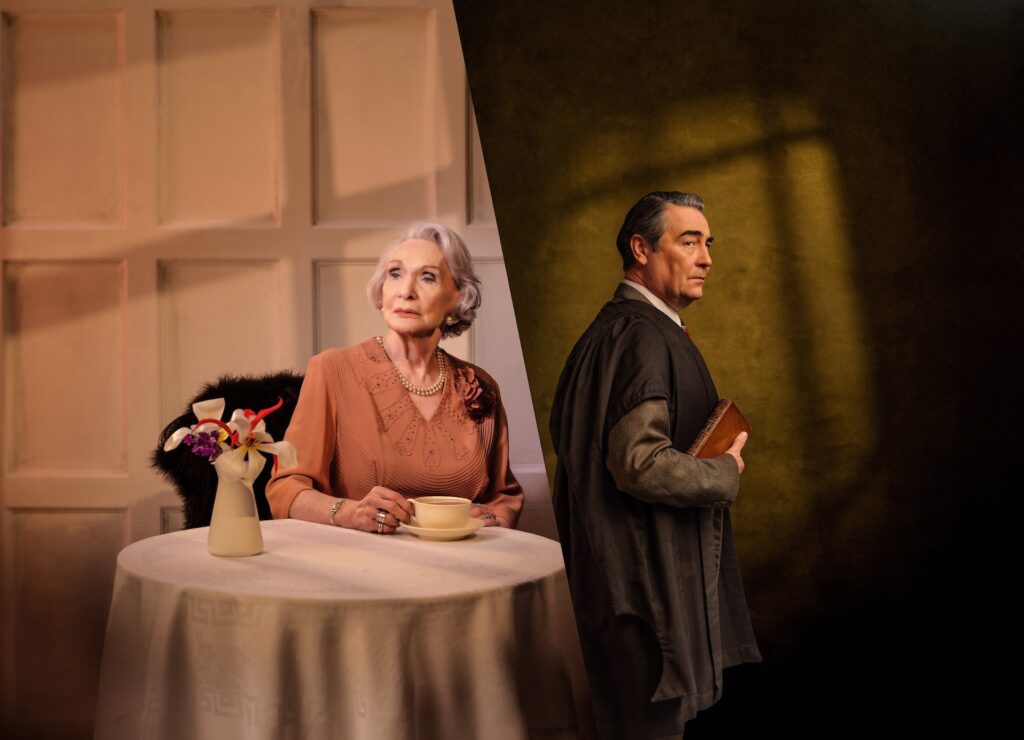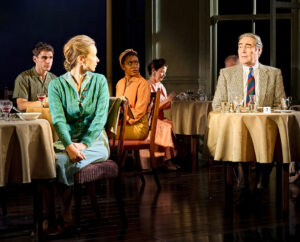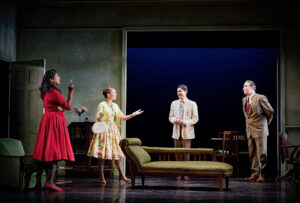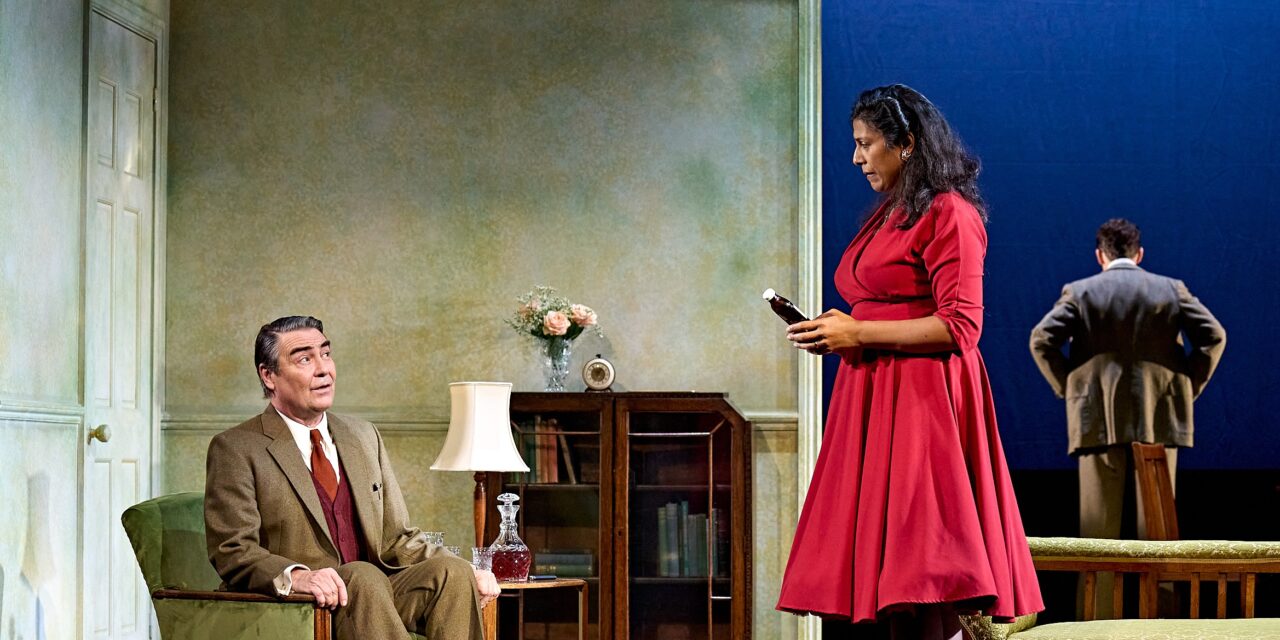
24 0ctober – 2 November
Directed by James Dacre, Summer 1954 brings together Terence Rattigan’s plays Table Number Seven and The Browning Version for the first time, and this proves to be an effective pairing. As the central character in both plays, Nathaniel Parker gives two touching portraits of men forced by circumstance to address their personal failings.

Table Number Seven: Set in a Bournemouth boarding house, we witness how guests react to the discovery that one of their number, Major Pollock, has been arrested for importuning men. It is shocking today to see how it is taken for granted that this is repugnant, criminal behaviour. It is equally shocking to learn that originally Rattigan had the Major commit a different offence, that of harassing women in a cinema, for no reference to homosexuality was allowed on stage. This production uses alternative passages that Rattigan wrote but never saw performed. In 1954 sexually harassing women was socially more acceptable than propositioning men, a fact which encapsulates both the misogyny and homophobia of the time.
Making clever use of the revolve, Mike Britton’s set takes us into the hotel dining room, where Mrs Railton-Bell, a self-righteous busybody, demands that the major be expelled from the premises. Siȃn Phillips is magnificent as this stern termagant. Not everyone is so judgemental, and as the worldly-wise Miss Meacham, Richenda Carey is charming as an elderly guest who takes a broader view.
Nathaniel Parker depicts the Major as a man so used to living a lie that he has lost touch with his true self. He finds a soulmate in Sybil (Alexandra Dowling), Mrs Railton-Bell’s highly strung, mother-dominated daughter. Both Sybil and other hotel guests ultimately rebel against the intolerant Mrs Railton-Bell and offer the Major a degree of acceptance, which surely represents Rattigan’s plea for a more open-minded society. How do they show him that he is not a social pariah? By talking to him about the weather and the latest cricket scores – a quintessentially English touch.

The Browning Version: This is thought by many to be Rattigan’s best play, and in this fine production one can see why. It portrays a man whose life, by his own estimation and by that of his unfaithful wife, is an abject failure. Andrew Crocker-Harris is a schoolmaster long passed over for promotion, and long resigned to being seen as a somewhat eccentric character by his pupils – ‘the Himmler of the Lower Fifth’. Ill health now forces him to take an undemanding dead-end job in another, less prestigious school. As his embittered wife Millie, Lolita Chakrabarti depicts a women eaten up by frustration both of a material and of a sexual kind. In a performance of considerable depth and subtlety, Nathaniel Parker endows Crocker-Harris with a poignant self-awareness. We see that he is suffering not so much a sickness of the body, ‘but a sickness of the soul.’ When a pupil gives him a farewell gift of Browning’s translation of Agamemnon, he is caught emotionally off balance, forced to reflect on his situation and think again about his next move.
It was once thought by many that the advent of the Angry Young Men in the late 1950s had swept Rattigan’s polished and meticulously structured dramas into the dustbin of history. Not so, for we are rediscovering what an acute yet humane social commentator he was. Yes, Rattigan’s dramas are to some extent museum pieces but with theatre land dominated recently by musicals and adaptations of other genres, there should always be a place for ‘the well made play’. Featuring excellent performances from a strong cast, Summer 1954 effectively displays Rattigan’s many qualities as one of our finest dramatists.
★★★★☆ Mike Whitton, 30 October 2024
Photo credit: Manuel Harlan


